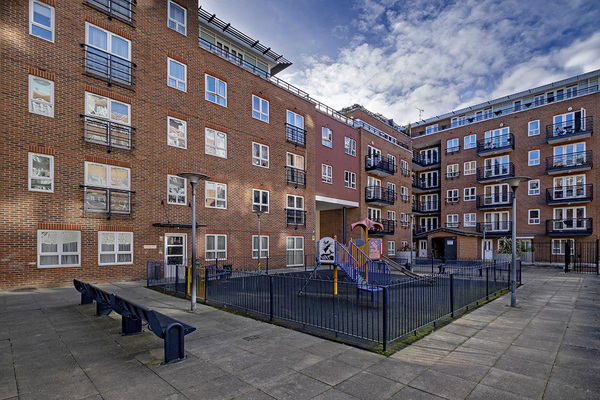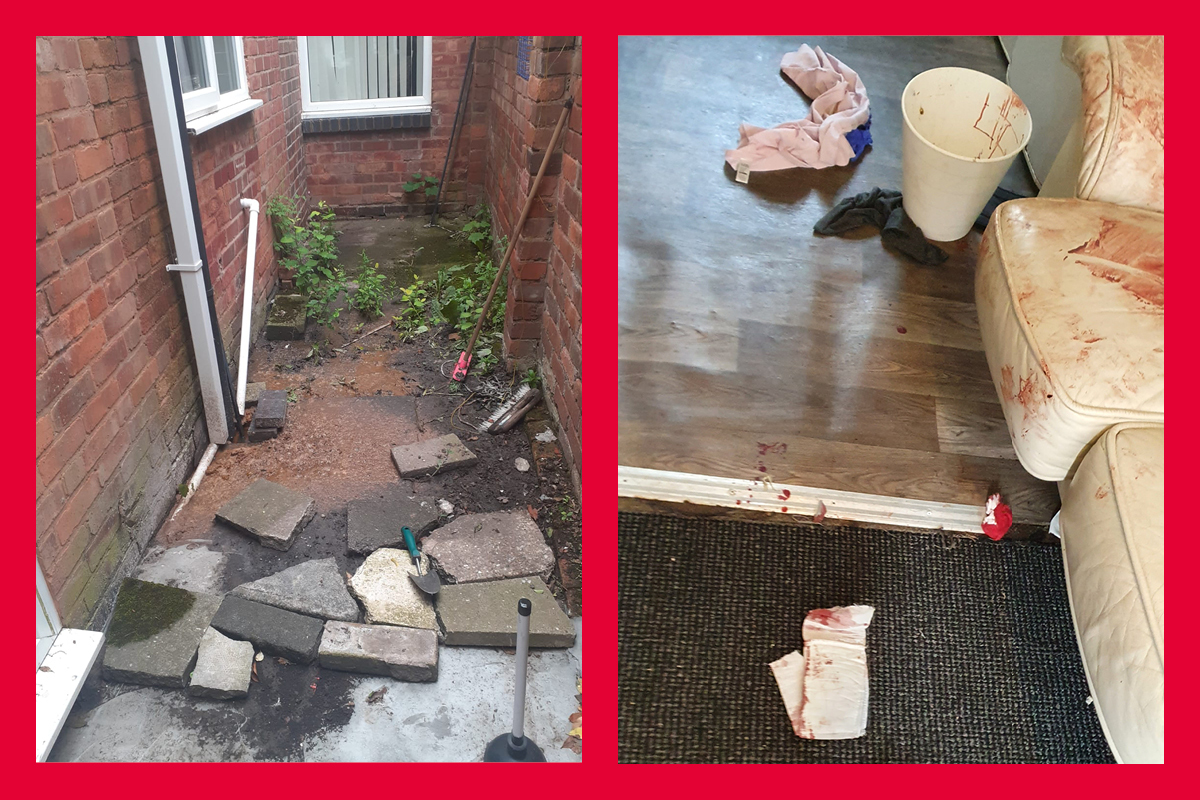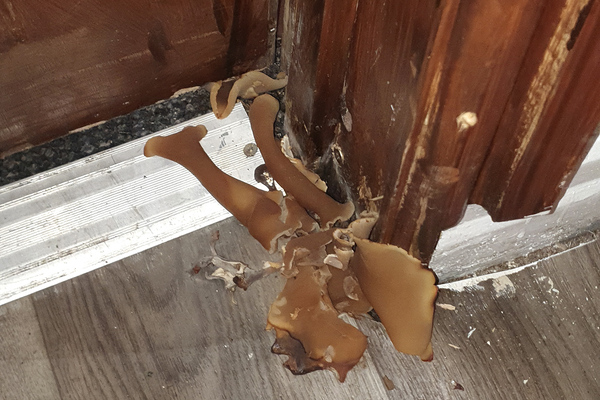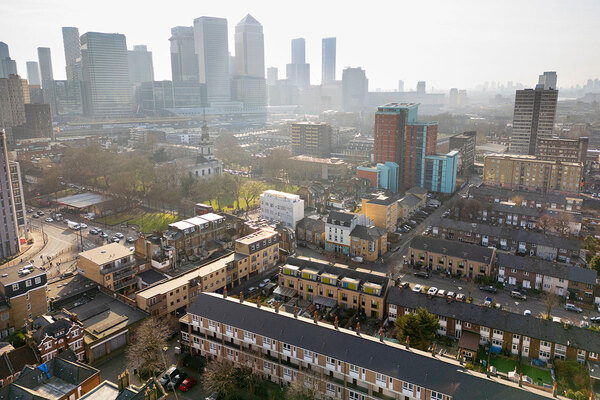Inside exempt accommodation: what it is really like to live in sub-standard supported housing
The number of sub-standard exempt accommodation properties is on the increase across the country, but what is it really like to live in one of these homes? Jack Simpson speaks to two people who have endured this type of housing
An increasing amount of exempt accommodation housing is substandard, providing very little care, support or supervision. This is having a profoundly detrimental impact on people.
The number of exempt accommodation bed spaces across the UK has ballooned in recent years.
Analysis by Crisis, the homelessness charity, found that the number of exempt households had rocketed from 95,149 to 153,701 between May 2016 and May 2021, an increase of 61%.
Nowhere has this rise been more acute than in Birmingham, the country’s epicentre of exempt accommodation.
Here, numbers have grown from just 3,769 households in 2014, to nearly 22,000.
This type of accommodation allows uncapped housing benefit to be claimed, due to the support provided. It has become a crucial option for those who are hard to house, such as prison leavers, rough sleepers, refugees and migrants, and those experiencing substance-abuse issues.
In many cases, the accommodation provided is of a good standard, the support is of a high level, and tenants have a positive experience that provides a foundation for moving into social housing or the private rented sector.
However, there are more and more examples where the housing is substandard and there is next to no care, support or supervision. This is having a profoundly detrimental impact on people, many of whom are escaping trauma or illness and need a stable and supportive environment.
So, what is it like living in one of these properties? Inside Housing has spoken to two people who have been, or are being, housed in Birmingham’s exempt accommodation sector. Here they share their often-harrowing experiences.
Princess Morton-Wade
In 2018, Princess found herself in need of a home. She spent some time in temporary accommodation before arriving at her first exempt accommodation property.
Since then, she has spent three-and-a-half years moving between six of these properties.
“The worst one was when our house was raided at gunpoint. It was on payday, so I’m pretty sure someone in the property tipped them off,” she tells me.
During her years in exempt accommodation, Princess has experienced racism, violence and a deterioration in her mental health.
“It wrecks your head, because you have to isolate yourself. You get mental health issues you never knew were there, you get a sense of paranoia,” she says.
A common situation she has come across is what those in the Birmingham exempt sector call “risky mixes”, where providers keen to fill homes can place domestic abuse survivors with those that have just left prison for violent crimes.
She tells of a flatmate who was housed with a violent criminal. She was so scared of leaving her room, she used her bin as a toilet.
“She had Crohn’s disease, it was awful,” she explains. “A guy was trying to get into her room. We were watching the door bounce and the support workers didn’t step in. We had to manhandle him out of the house.”
In some cases, the tenants are not even there. In one case she remembers, a provider was claiming for a tenant who was in jail.
These stories are backed up by reports from the West Midlands Police, which found a number of cases of benefit fraud and providers claiming for “ghost tenants”. Birmingham City Council has referred nine fraudulent exempt accommodation claims to the Department for Work and Pensions.
What about the support? In Birmingham, those living in exempt accommodation can claim more than £850 for a room with shared facilities, compared with £291 of housing benefit for a standard room.
As part of the rules around exempt accommodation, claimants and their providers can only claim the higher level of housing benefit if they provide “more than minimal” or a “trifling” level of support.
This loose definition has allowed some providers to claim this level of benefit without providing much support.
Princess, like many others Inside Housing has spoken to, says support was non-existent in most places. She says often support workers would just enter the building unannounced, and support usually consists of them collecting the £15 service charge (to cover the care element) and getting a signature on a care plan.
“They are supposed to spend an hour with you, help you with prescriptions, take you to appointments and stuff, but you don’t get that support,” she says. “Standards of care don’t exist. As long as you have a National Insurance number and can claim, that’s what they care about.”
Princess has also seen support workers encouraging people to start claiming a Personal Independence Payment (PIP), so they can receive an even higher rate of housing benefit. PIP is extra money to help with everyday life if a person has an illness, disability or mental health condition.
“I used to hear, every week, people saying, ‘Beggars can’t be choosers’. That phrase makes me feel like slapping someone off their seat. I’m not a beggar, I’m a tenant”
She eventually escaped exempt accommodation last year, after she was evicted from her property. She would later discover this was done illegally.
After being able to borrow some money, she is currently living in a privately rented room. She has strong views on how those in exempt accommodation are treated.
“I used to hear, every week, people saying, ‘Beggars can’t be choosers’. That phrase makes me feel like slapping someone off their seat. I’m not a beggar, I’m a tenant,” she says.
“They say, ‘But you’ve got a roof over your head’. Yeah, but that roof leaks, housemates are scary – I mean really scary – and rodents are crawling all over the place.”
Joey
Joey is one of many prison leavers who has ended up in exempt accommodation after leaving the criminal justice system. After several years in prison, he left in 2018 and was initially put into an approved premise for prison leavers for six months.
He says prison leavers are often offered other housing after this, with exempt being an option more often than not.
He chose that route. For a three-year period his living situation was good, with amenities, nice staff and a safe space. The property he lived in was fully furnished, appliances were replaced, and he had a good relationship with the people who ran it and provided support.
However, a new support worker was brought in, their relationship soured and Joey was eventually evicted from the property.
He shows me a picture of his stuff thrown out of his room and into the garden of his old exempt home. “That is how it was done,” he says. “It was a real shame, because there was a lot of furniture there that could have been used.”
Not wanting to move back to the property, he looked on Gumtree and found a new one in an area of Birmingham he liked. Gumtree and other property websites have become magnets for exempt accommodation providers to advertise their homes.
Often this involves them hijacking the property pages of cities and regions outside Birmingham, with promises of cheap rent. In August, the government slammed this hijacking of Gumtree and said it was looking into the issue.
Joey moved in after contacting the person who posted the advert and was struck by just how small the rooms were. Downstairs, plaster walls had been constructed to split the rooms in two. There was barely a metre either side of the bed, Joey says.
When he moved in, there were barely any appliances. “There were two fridges, a freezer and an oven, but nothing else, not even bins,” he says.
While the gas was connected, Joey would later discover that the landlords had not been paying the bills properly, after bailiffs came to the door demanding repayment, not once, but twice.
There were other problems, too. Joey shows me a picture of what can only be described as a mushroom growing out of the floor of one of the rooms.
“We’ve had fungi growing through the floors because of the damp, our washing machine didn’t get replaced for months, and we’ve had maggots and flies,” he says.
He says people have been moving in and out on a weekly basis, and this has led to a number of incidents. One tenant was inviting his friends around to stay at the property and sleep in the front room.
There have been instances of residents waking up to find machete marks on their doors and marks carved into the walls.
There has also been violence.
Joey recalls finding one of his flatmates in his room after being stabbed by another resident. This resulted in the house being visited by armed police officers, who turned the house over and caused damage.
Have they received any support? No, according to Joey.
“There is no support. The support is basically your provider asking if you are still on UC [Universal Credit],” he says. Because he is on disability support, Joey receives £235 a week (£940 a month) for his room. To put that into perspective, the rent for a two-bed house in the same area is £800 a month.
“Basically, they are happy to let you in there if you are on UC. If your UC gets stopped, or you get sanctioned, then you have to leave,” he says.
For those who do kick up a fuss, there is always the threat of quick evictions.
He has seen people get kicked out with less than 24 hours’ notice, one after just a few days at the property after they complained about the keys.
Joey is now on the housing waiting list and is waiting it out until the council offers him a property. Others, who should be getting support to help them access the list, aren’t so lucky.
Sign up for our care and support newsletter
Already have an account? Click here to manage your newsletters















